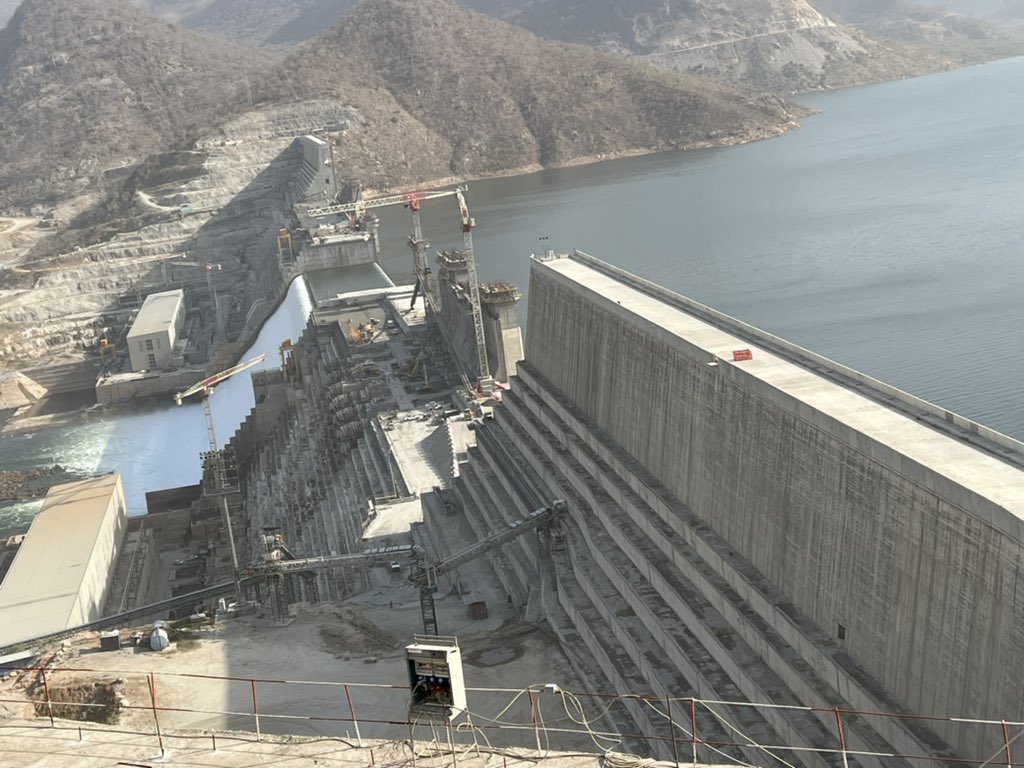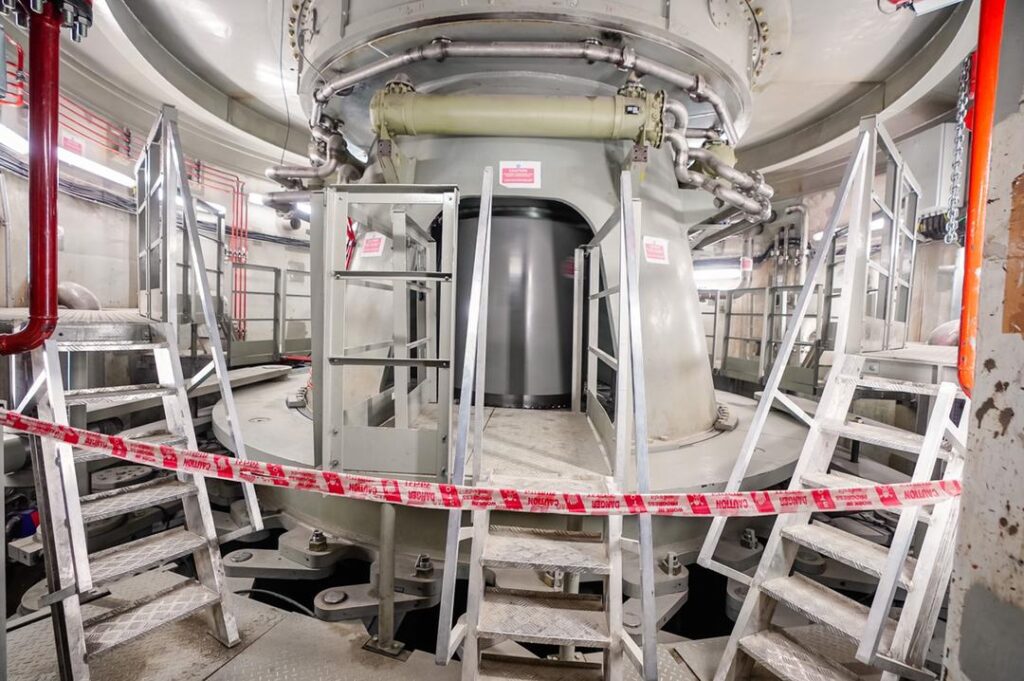Ethiopia Produces First Power at GERD Mega-Dam
Credit to Author: Sonal Patel| Date: Sun, 20 Feb 2022 16:06:35 +0000

Ethiopia began delivering power from a 375-MW turbine at its flagship 5.15-GW Grand Ethiopian Renaissance Dam (GERD) on Feb. 20, marking a significant milestone for the project that could become Africa’s largest hydropower producer.
Prime Minister Dr. Abiy Ahmed inaugurated the project in a celebration broadcast widely in the East African nation on Sunday. Officials hailed the project’s first power as a crucial achievement that has taken more than a decade to deliver.
GERD is located on the Blue Nile—a significant Nile River tributary—in the northwestern Ethiopian region of Benishangul-Gumuz-Gumaz, about 500 kilometers (km) northwest of Ethiopia’s capital Addis Ababa and 15 km from its border with Sudan. The project is being built by Webuild Group, a subsidiary of Italian construction giant Salini Costruttori S.p.A., for state-owned Ethiopian Electric Power. When finished, it will comprise a main dam in roller compacted concrete with two power stations installed at the left and right banks of the river.
According to Webuild, original plans called to outfit GERD with 16 375-MW Francis turbines. However, while originally envisioned as a 6.4-GW project, Ethiopian officials in 2019 reportedly slashed the number of turbines to 13, bringing the dam’s total capacity to 5.2 GW, and its perceived annual generation to 15.76 TWh.

A Controversial Triumph
However, Ethiopian officials have not announced a definitive timeframe for when the full 5.15-GW project could come online. Dr. Sileshi Bekele, Ethiopia’s former Water and Irrigation minister, who was in October appointed as its chief negotiator and advisor on Trans Boundary Rivers and GERD, in November told reporters that overall construction progress of the dam had then reached 82%.
The nation marked its second-year filling of the dam’s massive reservoir in the summer of 2021, drawing the ire of Egypt and Sudan, its neighbors downstream of the Nile River.
Sudanese authorities have said GERD could help regulate waters of the Nile and reduce the risk of flooding, but the country has expressed concerns about the project’s impact on the efficiency of its 280-MW Roseries Dam, and it has strongly decried unilateral action by Ethiopia to fill the GERD reservoir. Egypt, meanwhile, has similar fears about its water security, especially concerning its 2.1-GW High Aswan Dam (HAD), which is today Africa’s largest hydropower facility. The dam also pivotally serves Egypt’s agricultural, municipal, and industrial water requirements through regular annual releases of 55.5 billion cubic meters.

Webuild Head: Ethiopia’s ‘White Oil’ is a Divine Gift
On Sunday, Bekele on Twitter said GERD is poised to be “instrumental for clean and renewable energy,” because it “creates access to 65 million people without electricity.” He also noted the project being built through a “direct contribution” and bond purchases by Ethiopian citizens will provide “meaningful” interconnection with neighborhood countries. Kenya, notably, is reportedly exploring a power purchasing agreement with Ethiopian Electric Power, with an agreement likely in the coming weeks.
Pietro Salini, CEO and founder of Webuild, during a speech at the inaugural ceremony, suggested the project was a turning point for Ethiopia. “We have done a lot of projects together. We have changed the capability of this country utilizing water,” he said. “God gave to Ethiopia a special gift. No oil, no gas—water,” he added. “This is the white oil of Ethiopia.” Salini also underscored the project’s sustainability attributes. “When we talk about sustainable goals of the United Nations, here it is,” he said.
The project has been fraught with difficulty owing to international pushback, Salini noted. “There have been so many enemies against it, it is so difficult even to find the money—because it’s easy when you have the money,” he said. “It’s much more difficult when you have to ask the people to take something out of their food to give help to their country and think for the future.” Salini hailed the success for first power. “We can say the first step is done,” he said.
While commentary about GERD’s first power is still trickling in, Egypt’s Ministry of Foreign Affairs has so far issued a statement lambasting the “unilateral” inauguration of the dam. The ministry has claimed the project violates a 2015-signed Declaration of Principles in which Ethiopia, Sudan, and Egypt outline the appropriate use of the dam.
—Sonal Patel is a POWER senior associate editor (@sonalcpatel, @POWERmagazine).
The post Ethiopia Produces First Power at GERD Mega-Dam appeared first on POWER Magazine.